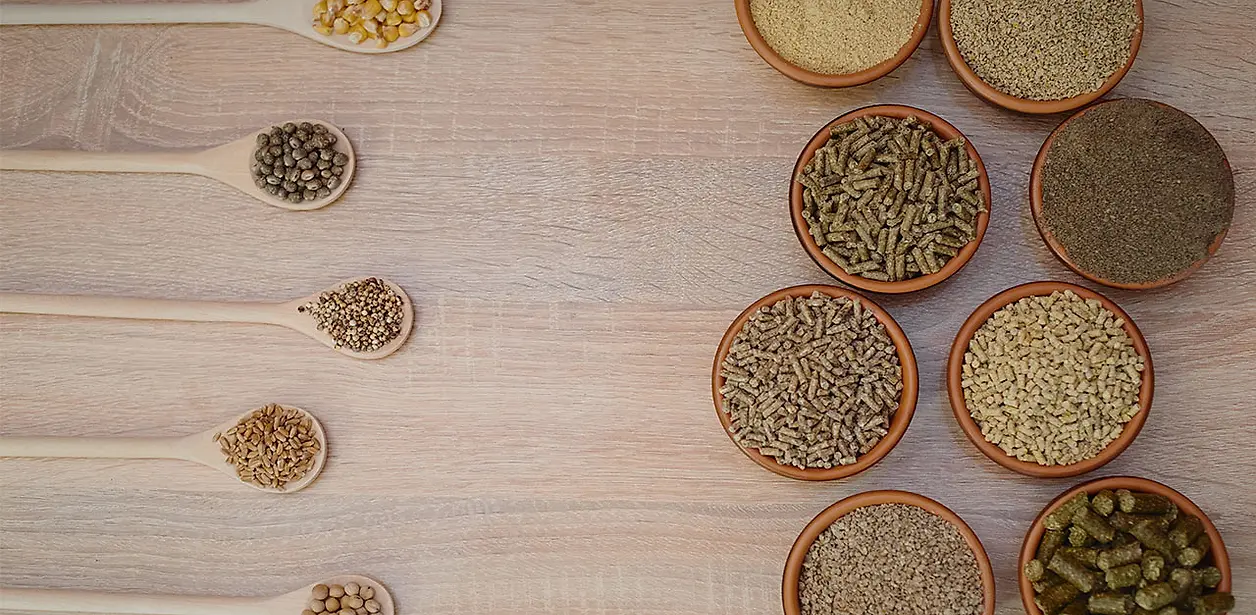ISO 22620 Crude Fat Extraction in Animal Feed
The extraction and analysis of crude fat content in animal feed play a critical role in ensuring the nutritional quality and safety of feeds. ISO 22620 provides a standardized method for determining crude fat in animal feeds, which is essential for maintaining compliance with international standards and supporting product development.
Crude fat forms an important component of animal diets, influencing feed palatability, energy content, and overall nutritional value. Accurate determination of this parameter ensures that producers can meet the dietary needs of animals while also ensuring that feeds are safe for consumption by both livestock and pets.
The process involves extracting triglycerides from the sample using a solvent such as n-hexane or ethanol. The extracted fat is then quantified gravimetrically after drying to constant weight under specified conditions. This method ensures consistency in results across laboratories, which is crucial for global trade and regulatory compliance.
The ISO 22620 protocol specifically addresses the challenges of analyzing complex matrices found in animal feeds, such as those containing high levels of protein or fiber. The standardized approach helps minimize variability between different batches and suppliers, ensuring a more reliable product.
For quality managers, compliance officers, and R&D engineers at food and feed manufacturing companies, this service provides critical insights into the composition of their products. Understanding crude fat content is essential for optimizing formulations to meet nutritional targets while also addressing consumer preferences and regulatory requirements.
Why It Matters
The accurate determination of crude fat in animal feeds is not only a compliance requirement but also a key factor in ensuring product quality. Compliance with international standards such as ISO 22620 helps manufacturers avoid legal issues and maintain their reputation, especially when exporting to countries with stringent regulations.
From an operational perspective, accurate crude fat analysis aids in optimizing feed formulations to improve palatability and nutritional value. This can lead to better animal performance and health, which is crucial for profitability in the livestock sector. For quality managers and compliance officers, this service ensures that the products meet both internal standards and external regulatory requirements.
R&D engineers benefit from precise data on crude fat content as they develop new formulations or improve existing ones. Understanding the impact of different ingredients can lead to more innovative and effective feed products. Additionally, accurate analysis helps in identifying potential quality issues early in the production process, thereby reducing waste and improving efficiency.
Applied Standards
| Standard Reference | Description |
|---|---|
| ISO 22620:2013 | Determination of crude fat in animal feeds by Soxhlet extraction and gravimetric determination. |
| ASTM E455-18 | American Society for Testing and Materials method for determining the amount of fat in feed ingredients or blends. |
| EN 13679:2000 | European standard for the determination of crude fat in animal feeds by Soxhlet extraction. |
| IEC 60482-1:2015 | International Electrotechnical Commission specification for testing and certification of electrical equipment used in the feed industry. |
Eurolab Advantages
At Eurolab, we pride ourselves on offering a comprehensive suite of services tailored to meet the needs of our clients in the food and feed sector. Our expertise lies not just in providing accurate results but also in ensuring that these results are reproducible and compliant with international standards.
We have state-of-the-art laboratories equipped with the latest instrumentation, including Soxhlet extractors for efficient fat extraction. Our skilled analysts ensure that each sample is handled with care, from initial preparation to final analysis. This attention to detail guarantees reliable data that can be trusted in court or regulatory submissions.
Our team of professionals includes chemists and engineers who are well-versed in the nuances of ISO 22620. They stay abreast of any changes or updates to these standards, ensuring that our methods remain current and relevant. This commitment to excellence translates into higher quality results for our clients.
In addition to technical proficiency, Eurolab offers exceptional customer service. Our dedicated team is always available to answer questions and provide guidance on sample preparation, interpretation of results, or any other aspect of the testing process. We understand that every client has unique needs, and we strive to offer customized solutions.





